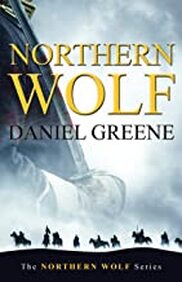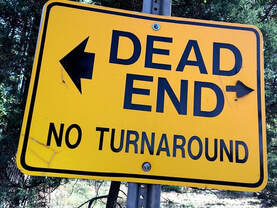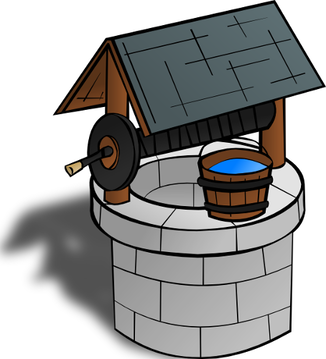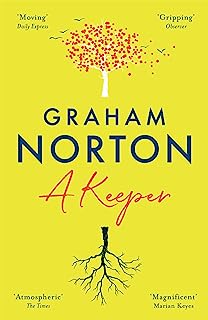|
This week we turn our blog over to one of our authors, who is reviewing one of his recent reads.
All views expressed are those of the author and not necessarily those of Selfishgenie Publishing. 
I am pleased to have stumbled across the Northern Wolf series of books, by Daniel Greene, the first one of which gives the series its title.
The title suggests something that might be in the fantasy genre (there is a fantasy series with a similar name), but it isn’t. It is a historical series set during the American Civil War (1861-1865). It had me hooked from the first page, so it is good that the series is available as a box set, so I can keep the cost down because I’m definitely riding along with this one. Johannes Wolf.is a young man who is drifting aimlessly through life. Due to a leg injury sustained as a child he is unable to work and, feeling unmanned by his disability, he settles into a life of drinking and brawling. Unwisely, he decides to take on three brothers, Polish migrants with little understanding of the English language, and he ends up in jail, in the next cell to his three former opponents. At this point a recruiting Sergeant for the Union Army turns up and tries to sign up the three brothers; big, strapping lads who would make good soldiers. The sergeant plays on their lack of language skills to get them to sign the enlistment forms. Wolf signals to the brothers that this isn’t a good idea. He then persuades the Sergeant that he can get the brothers to sign, but only on condition that he too is allowed to enlist (he had previously been turned down by the Army because of his disability). While Johannes may not be able to march very well, he has no problem riding a horse and the Sergeant is recruiting for the cavalry. Unable to resist the temptation of signing three good recruits, the Sergeant agrees reluctantly, and Wolf and the three Poles set off to start a new life in the 13th Michigan Cavalry. They are then shipped off to a training camp outside Washington DC, a city under threat from the advancing Confederate Army. It comes as no surprise to anyone who knows a little bit of history that it isn’t long before Wolf and his comrades are called upon to fight in the Battle of Gettysburg (1st – 3rd July 1863). The 13th Michigan are assigned to the Michigan Cavalry Brigade under the command of the newly promoted Brigadier General George Armstrong Custer, who would later find fame for less glorious reasons, but who has already established a reputation for being something of a maverick and a firebrand. That is a fact, by the way, Custer did command this brigade at Gettysburg, though the inclusion of the 13th Michigan Cavalry in the brigade is a fiction. I won’t go into any more detail here, preferring to let author Daniel Greene tell the story, which he does very well. The plot isn’t a complicated one, but the story is well told and the characters Greene creates are interesting and believable. Johannes Wolf finds he enjoys army life and his new sense of purpose motivates him to become a good soldier. Greene surrounds Wolf with a cast of similarly well rounded characters. So why only 4 stars? It is down to the battle scenes. I found them confusing, unable to picture the whereabouts of the characters within the action; who is doing what, where and to whom. There are no helpful maps of the battlefield and I found I lost track of events very quickly No doubt this reflects the fog of war, but it doesn’t help the reader to keep track of events to see how the battle develops and moves through its critical phases. In particular it doesn’t place the book’s characters at the centre of the action where they can influence the outcome. They become irrelevant to the events around them, less than pawns in a game of chess. As Wolf is the main character, he should be right at the centre of the action, saving the day for the Union Army (even if only fictitiously). There is one scene where Wolf’s character is really influential (I won’t give it away here), but that is one incident in a book that is 245 pages long. However, don’t let me put you off this book because, for lovers of historical novels with a military flavour, it is an enjoyable read. This may not be Richard Sharpe at his finest (my benchmark for 5 stars in this genre), but Wolf is a likeable character and I found I really came to care about what would become of him. For my British readers, you don’t have to know a lot about the American Civil War to enjoy this book. My American readers probably know all they need to anyway. I look forward to reading more about Wolf’s adventures in Book 2 of the series, Northern Hunt. If you would like to know more about “Northern Wolf” by Daniel Greene, just click the link below. If you have enjoyed this blog, or found it informative, then make sure you don’t miss future editions. Just click on the button below to sign up for our newsletter. We’ll even send you a free ebook for doing so.
0 Comments
 What does it mean when an author puts “No 1 bestselling author” or “No 1 bestselling book” in their social media profile? That is a hard question to answer. Were they, even for a short time, the bestselling author in the world? That’s hard to say unless you search the bestsellers listings on a regular basis. Maybe they were, maybe they weren’t. Were they the bestselling author in their country? Same answer. Were they the bestselling author in their genre? Same answer. You see the problem we have here. They may be telling the truth, they may be telling a lie, or they may be telling the truth, but not the whole truth.  I’m referring here to the Amazon bestsellers lists, because the newspaper and literary magazine listings have very strict criteria for getting onto their lists. They are based on global or national sales for the week, month or year and the figures are provided by the retail outlets, not by the publishers or authors. That makes it more difficult for the figures to be inflated (ie lied about). For the Sunday Times or Guardian bestsellers lists for the year, for example, you would need to sell in the region of a 100,000 copies of your book in all formats just to get into 100th place. If you ever make the dizzy heights of being No 1 on those lists, no one will doubt your right to call yourself “bestselling”.. For a start, lots of readers will have heard of your name and the title of your book by then, because you will have been all over the retail outlets, both the physical shops and on-line.  But on Amazon, for some sub-genres, you could get to No 1 spot with just a single sale. Even to get to the No 1 slot in one of the top level genres, you could make it with just a few hundred sales. We used Publisher Rocket’s “category search” function and discovered that in the Books>Science Fiction and Fantasy category you can make the No 1 slot with only 335 copies sold. You would have to sell them over a short space of time, no more than a day probably, but that is doable if the book is a good one. OK, that may only be for a few hours, or for a few days, but you’re up there and you can screenshot it to provide evidence of your claim. Which is where telling the truth, but not the whole truth, comes into the equation.  An author can claim to be No 1, but they don’t have to say for how long they were No1, or in what category and/or sub-category they were in. Because, on Amazon, you can choose your own categories and Amazon won’t question it. You can list your book as Kindle Store > Books > Science Fiction & Fantasy > Fantasy > Christian Fantasy. You can then ask 5 family members or friends to buy a copy of your own book (you might even give the money so they don’t have to pay for it themselves) to send it to No 1 in that category, where it will stay until another book in the same category outsells it. Amazon won’t question that choice of category, so it won’t get rejected. And you don’t have to tell your followers on social media that you have only sold five copies when you put “No 1 bestselling author” (or book) in your profile.  Am I advising you, as a self-published author, to game the system by listing your books in obscure categories where you can make the No 1 slot with just one sale? No, I’m not. What I am advising you, as a reader, to beware of is that just because someone has made the claim, it doesn’t mean their book is actually a best seller in any real meaning of the expression, because the author may have gamed the system. We live in a world where deception is now seen as normal because people use the excuse “everyone does it”. Well, I’m here to tell you that not everyone does it, because we here at Selfishgenie Publishing don’t do it and we don’t allow our authors to do it either. It means that we will probably never be able to claim “best seller” status for any of our books, because although we sell quite a few books, we don’t sell 100,000 copies a year of any title. What can you do as a reader to make sure you aren’t fooled?  The answer is not to look at subgenres when looking at the sales rankings. Look only at the overall ranking and then the headline genre eg. Sci-fi and fantasy; thrillers, crime; Action & Adventure, Romance, etc. If a book is ranked overall in excess of 500,000 (10k in its genre) then it means it hasn’t sold very many copies and probably not sold any recently. If a book is between 500k and 100k (10k to 5k in its genre) it has sold a few copies and probably in recent months. If a book is between 100k and 50k ( 5k to 2k in its genre) it is selling more copies, and if it is better than 50k it is selling regularly. If a book is ranked better than 10k (2k in its genre) then it’s doing very well. And if it’s doing very well, there is probably a good reason for that which has nothing to do with the author’s claims for it. In other words, you can buy with some confidence that it is likely to be a good read.  Those numbers are just “ballpark” though. Because sales vary so much between genres, it is difficult to be too precise. It’s like comparing apples to elephants. A high volume genre such as Action & Adventure is going to require more sales to get it to the 10k ranking than a book in a lower volume genre, such as Horror. That is why the overall ranking and the genre ranking have to be viewed side by side. And that’s why looking at sub-genres can be so misleading. As I have pointed out, in some categories it is possible to be No 1 with just a few sales. If the author has a loving mother, father, spouse, siblings and few good friends to buy the book, it could get a pretty good sales ranking even if it is the worst book ever written. If you have enjoyed this blog, or found it informative, then make sure you don’t miss future editions. Just click on the button below to sign up for our newsletter. We’ll even send you a free ebook for doing so.  No Way Out! No Way Out! It is a common theme on social media, for authors to bemoan the fact that they have got their characters into a certain situation but can’t find a way out for them. I guess it is a sort of “writer’s block”, but it is one that is avoidable. Authors can be split into two broad types (at the risk of stereotyping); there are the “plotters” and there are the “pantsers”.  Plotters plan their book in advance, breaking it down to chapters, then scenes and even to paragraphs, depending on how focused they are on the fine detail. Some plotters spend far more time planning their books than they do actually writing them (OK, maybe an exaggeration, but they do spend a lot of time on planning). We are not here to talk about plotters. If you are one then move along, there is nothing for you to see here. (OK, stick around and read about how miserable things sometimes get for pansters if you want to). Pansters “fly by the seat of their pants”, hence the name. They sit down in front of their PC, laptop, tablet or phone (some even use a pencil and paper) and just start writing. They have no idea what is going to happen in their book until the words appear in front of them.  Life as a pantser! Life as a pantser! I am a pantser and proud of it. I think I’m more creative because of it. And yes, sometimes I get myself into a position where I don’t know what is going to happen next. But I have learnt from that, so it happens a lot more rarely than it used to. Which brings me to the subject of this week’s blog, which is how pantsers can save themselves a lot of anguish and a lot of time. I now have one simple rule that I live by when it comes to writing: never put your protagonist into a situation unless you know how you are going to get them out of it.  So, your protagonist gets into a fight and gets thrown down a well. Good bit of drama. No problem. But if you don’t know how they are going to get out, you could end up staring at that screen for a very long time. It could result in you going all the way back to before the fight started and re-writing the whole chapter so that this time they don’t get thrown down a well. Which means you lost a whole lot of time by not thinking about it first. So, here is a hypothetical scenario, as I would play it out in my head. Me. “I’m going to ramp up the action so that my protagonists is going to get into a fight.” Me in my head. “Good idea. How is it going to have a dramatic ending?” Me “He’s going to get thrown down a well, which is too deep for him to get out. And the antagonist then cuts the rope that’s attached to the bucket and throws it into the well with him, so he can’t climb up the rope.” Me in my head “Sounds good, but he’s eventually got to get out, so how will he escape?” Me, “Someone will come past, hear him calling for help and lower a rope down to him and haul him out.”  Now, you may think that’s good (or maybe you don’t). But is it believable? I mean, is it normal for people to just wander past carrying a bit of rope long enough to reach the bottom of a well? Yes, we expect our readers to suspend their disbelief, but we can’t expect them to believe in miracles (unless it’s a religious story, of course, where miracles are a routine explanation for everything). So, I now have to think about how this person is going to turn up out of the blue, carrying the rope. Me in my head “Where did this bloke come from and why is he carrying a rope?” Me (after a lot of head scratching) “He’s a bellringer in the local church and he has to replace the rope on one of the bells. He is just on his way to do that when he heard my protagonist calling for help.” Me in my head. “OK, that’s believable. Go for it.” It may be necessary to go back a few pages, or even a few chapters, to introduce the bell ringer, to add credibility to the plot. Maybe we’ll see him with his wife (it has to be a he so he is strong enough to haul a fully grown man out of a well), having breakfast and discussing what he is going to do that day, then we follow him on his walk to the church, which takes him past the well.  Guess which character is going to die! Guess which character is going to die! But that is easier to do than going back to square one because I haven’t given the matter any prior thought. If you are a pantser and all that sounds like a bit of a chore, then OK. It’s your story, write it your way. All I’m saying is that you can make life easier on yourself by not going hell-for-leather all the time. Just stop and think about what will happen next, especially when it comes to putting your protagonists in the way of danger. And if you think all the above doesn’t apply to you because you write romance, or another genre that doesn’t involve throwing characters down a well, think again! You will be putting your characters into unsuitable relationships from which you then have to extricate them. That is a metaphorical well. Some types of book make it easier to find additional characters at the right time than others. I’ll use a well known TV series to illustrate. In the original Star Trek series, we only saw a small number of crew members. But there was apparently a crew of 430. That made it easy to introduce a new face when it was needed. I’m sure we can all recall episodes where a previously unknown crew member joined a landing party, only to die almost as soon as they were transported to the planet’s surface. But that minor character was important, because his death (it was nearly always a man) alerted the rest of the landing party to danger and ratcheted up the drama levels.  Other settings allow this as well. Basically, any plot that is set in a large organisation: hospital, military, school, police, FBI, CIA et al provides scope to introduce minor characters when they are needed. When writing a book with a smaller, tighter setting, it is much harder to introduce a new character. For example, in Robinson Crusoe, Daniel Defoe has to concoct a plot about cannibals coming to his island to kill and eat the character who would become Friday. When reading that as a child, I found it hard to believe. I mean, why would cannibals transport a prisoner across miles of dangerous ocean (Crusoe’s ship had already been sunk in a storm to leave him stranded) , when they could do what they wanted to much closer to where they captured him. Indeed, they could even do it at home. Credibility is important when introducing characters, especially if they have an important part to play in the plot, even if they’re only going to be in the book for a short segment..  Beware of remote locations Beware of remote locations So, that is something for you to think about if you are setting your story in a remote location, because drama means threat and threats have to be countered and the protagonist may not be able to counter the threat without help. In the film The Revenant (2015) the protagonist, Hugh Glass (Leonardo DiCaprio), teams up with a native American who saves his life when he becomes feverish, so this is a common trope and one that must be planned in advance. Even if it is only 30 seconds in advance. Finally, a word on the use of magic to solve your protagonist’s problems, for you pansters who write fantasy. I include miracles in that as well, even though writers of religious books wouldn’t consider them to be magical. However, the same problem exists.  If the only way out of their predicament for your protagonist is to use magic, then it’s bad idea. If magic is always going to be the solution, there is no point in reading the book. There is no drama for the reader if they know that no matter what happens, the protagonist is always going to be saved by magic. Magic has its place in fantasy, but only when magic is being used against it. Even then it should come at a cost to whoever is using it, so that further use is discouraged. Even Shakespeare, who occasionally used a bit of magic, knew to use it sparingly. OK pansters, lesson over. And all you plotters can now stop gloating and get back to your flow charts. If you have enjoyed this blog, or found it informative, then make sure you don’t miss future editions. Just click on the button below to sign up for our newsletter. We’ll even send you a free ebook for doing so.
This week we hand over our blog page to one of our authors, who is reviewing a book.
The views expressed in this blog are those of the blog's author and not necessarily those of Selfishgenie Publishing. 
Most Brits and Irish will know Graham Norton as an Irish comedian, actor, TV chat show, Eurovision presenter and radio broadcaster.
I probably missed something there, so I hope he’ll forgive me. But he’s also an author, and a rather good one at that. I started reading his books on the recommendation of a relative (Irish, naturally) and started with his first book, “Holding”. I didn’t review it because it had already been turned into a TV series, so many people will already know about it. In my opinion the book was superior to the TV version, but I’m one of those people who always thinks the book is better than the film (or TV) version so I may be biased. However, I couldn’t wait to review “A Keeper” which is Graham Norton’s second book. It’s a cracker, as the late Frank Carson (another Irish comedian) used to say. While “Holding” was a crime drama, with an out-of-his-depth village Garda (police) officer investigating a murder, “A Keeper” is very different. It hasn’t got any murders in it, but there is a lot of death. An awful lot of death. So, to the plot. Basically it is a detective story, but without any police or detectives. If that sounds odd, don’t worry. Just go with it. Elizabeth Keane came from a small town in Ireland and, like many Irish people before her, went to America, married and raised a family before getting divorced (not everyone who goes to America gets divorced, I know, but she did). She returns to her birthplace (so she thinks) to take care of family business which she has been too busy to attend to in the years since her mother died. She finds a box with letters addressed to her mother, Patricia, from around the time of her birth, which start to reveal secrets about her family. Most importantly, the letters are from her father, who she never knew, as he died not long after she was born. Around the same time, Elizabeth discovers that her son, Zach, who is supposed to be staying with his father in California, isn’t actually with him, having gone off on some adventure of his own. Worried about her son, she realises that there is nothing she can do to track him down from where she is. Her ex-husband persuades her not to cut her visit short and promises to look into the boy’s whereabouts and get back to her. Needing a distraction and intrigued by the letters, Elizabeth decides to look deeper into her past. From there on the secrets start to be exposed, leading the reader down a pathway to the past. But every time this reader thought he knew what was going on, Norton hit me between the eyes with something else which made me completely re-think my theories. I can tell you no more about the plot without spoiling it for you and I wouldn’t want to do that. But, believe me, every time you think “Ah, I know what’s happening here,” Graham Norton smacks you around the head with another surprise, as much to say “Oh no, you don’t know what’s going on”. Graham Norton has a very easy style of writing which makes the book enjoyable to read. He handles the descriptions of both people and places very well. The characters are beautifully drawn and highly believable. Being familiar with the part of Ireland where the book is set means I had no trouble hearing the characters voices in my head, complete with Cork accents (the Irish county, not the thing you take out of a wine bottle). If you are less familiar, just imagine the voice of Father Noel in the episodes of “Father Ted” in which he appeared, and you’ll get the idea. I realise that might not mean much to non-British and Irish readers, so you may need to google it. To save you time I found this on Youtube. Father Noel is the manic one and is played by the author.. Overall, this book is a really good read. While it will make you feel sad some of the time, and really worried about Patricia all of the time, the overall message is uplifting. I highly recommend "The Keeper" by Graham Norton. You can find out more about the book by clicking the link below. If you have enjoyed this blog, or found it informative, then make sure you don’t miss future editions. Just click on the button below to sign up for our newsletter. We’ll even send you a free ebook for doing so. |
AuthorThis blog is compiled and curated by the Selfishgenie publishing team. Archives
June 2025
|


 RSS Feed
RSS Feed